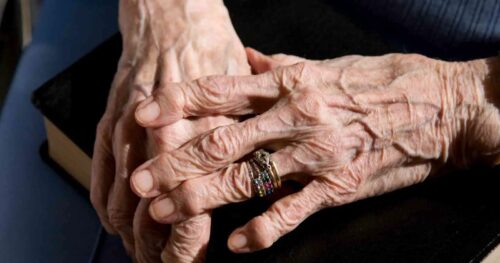Welcome, dear Boss Lady, to a conversation close to my heart. In this bustling world of business and entrepreneurship, where ambition often takes center stage, it’s easy for the bonds of trust and intimacy to become strained between partners. As a matriarch who’s navigated the delicate dance of balancing leadership with love, I’m here to share insights and strategies to fortify the foundation of your relationship with your businessman husband. Together, let’s explore the pathways to deeper connection and lasting fulfillment.
Understanding Each Other’s Roles
Let’s start by acknowledging the intricate tapestry of roles we weave in our lives. As a Boss Lady, you’re a force to be reckoned with in the professional arena, commanding respect and driving success with your vision and determination. Meanwhile, your businessman husband shoulders the weight of responsibilities in his own realm, navigating the complexities of commerce and industry. It’s crucial to take a moment to step into each other’s shoes, to empathize with the unique challenges and pressures we face. Communication lies at the heart of this understanding, as we strive to bridge the gap between our worlds with empathy and compassion.
Communication Strategies
Effective communication forms the bedrock of any thriving relationship, and ours is no exception. Open and honest dialogue serves as the cornerstone of trust, creating a safe space for vulnerability and authenticity to flourish. Let’s commit to actively listening to each other’s perspectives, without judgment or interruption, and validating the emotions that accompany our experiences. By carving out dedicated time for meaningful conversations, we can deepen our connection and strengthen the bonds that unite us. Remember, using “I” statements allows us to express our needs and concerns without placing blame, fostering a spirit of collaboration and mutual respect.
Balancing Personal and Professional Lives
Finding harmony between our personal and professional domains is an ongoing journey, one that requires conscious effort and intentionality. Establishing boundaries becomes paramount in safeguarding our time and energy, ensuring that work commitments don’t encroach upon our sacred moments of togetherness. Let’s prioritize quality time spent in each other’s company, whether it’s through shared meals, leisurely strolls, or heartfelt conversations under the stars. By nurturing our individual passions and hobbies, we enrich the tapestry of our relationship, infusing it with vibrancy and vitality.
Building Trust
Trust forms the bedrock upon which our relationship stands, anchoring us amidst life’s ever-shifting currents. Transparency emerges as a guiding principle in matters of finance and fidelity, fostering a sense of security and confidence in our partnership. Let’s honor our commitments and promises, demonstrating reliability and integrity in our words and actions. Expressing appreciation and gratitude for each other’s contributions nurtures a culture of appreciation, fostering a deep sense of mutual respect and admiration. Conflict may inevitably arise, but let’s approach it as an opportunity for growth and reconciliation, seeking resolution through open communication and empathy.
Fostering Intimacy
Intimacy transcends the physical realm, encompassing emotional connection, vulnerability, and shared experiences. Let’s celebrate the beauty of physical affection, whether it’s a tender embrace, a lingering kiss, or a gentle caress. By opening our hearts to one another, we create space for vulnerability and authenticity, deepening the bonds that unite us. Exploring new activities or hobbies together injects excitement and novelty into our relationship, fostering a sense of adventure and exploration. And let’s not forget the importance of keeping the flames of romance alive, through thoughtful gestures, surprise gestures, and spontaneous acts of love.
Overcoming Challenges Together
Life is replete with challenges and obstacles, but together, we possess the resilience and strength to weather any storm. Power dynamics may surface in our relationship, but let’s approach them with humility and empathy, seeking to understand each other’s perspectives and finding common ground. Managing stress and avoiding burnout requires a concerted effort to prioritize self-care and well-being, nurturing our physical, emotional, and spiritual health. And if ever we find ourselves struggling to navigate the complexities of our relationship, let’s not hesitate to seek professional help or guidance, recognizing that vulnerability is a sign of strength, not weakness.
Conclusion
Dear Boss Lady, as we journey together through the ebbs and flows of life, may we always remember the power of trust and intimacy in sustaining the bonds that unite us. Through open communication, mutual respect, and unwavering love, we can overcome any obstacle and emerge stronger and more resilient than ever before. Here’s to nurturing a relationship that stands the test of time, grounded in authenticity, and imbued with the warmth of our shared connection.

1 Comment